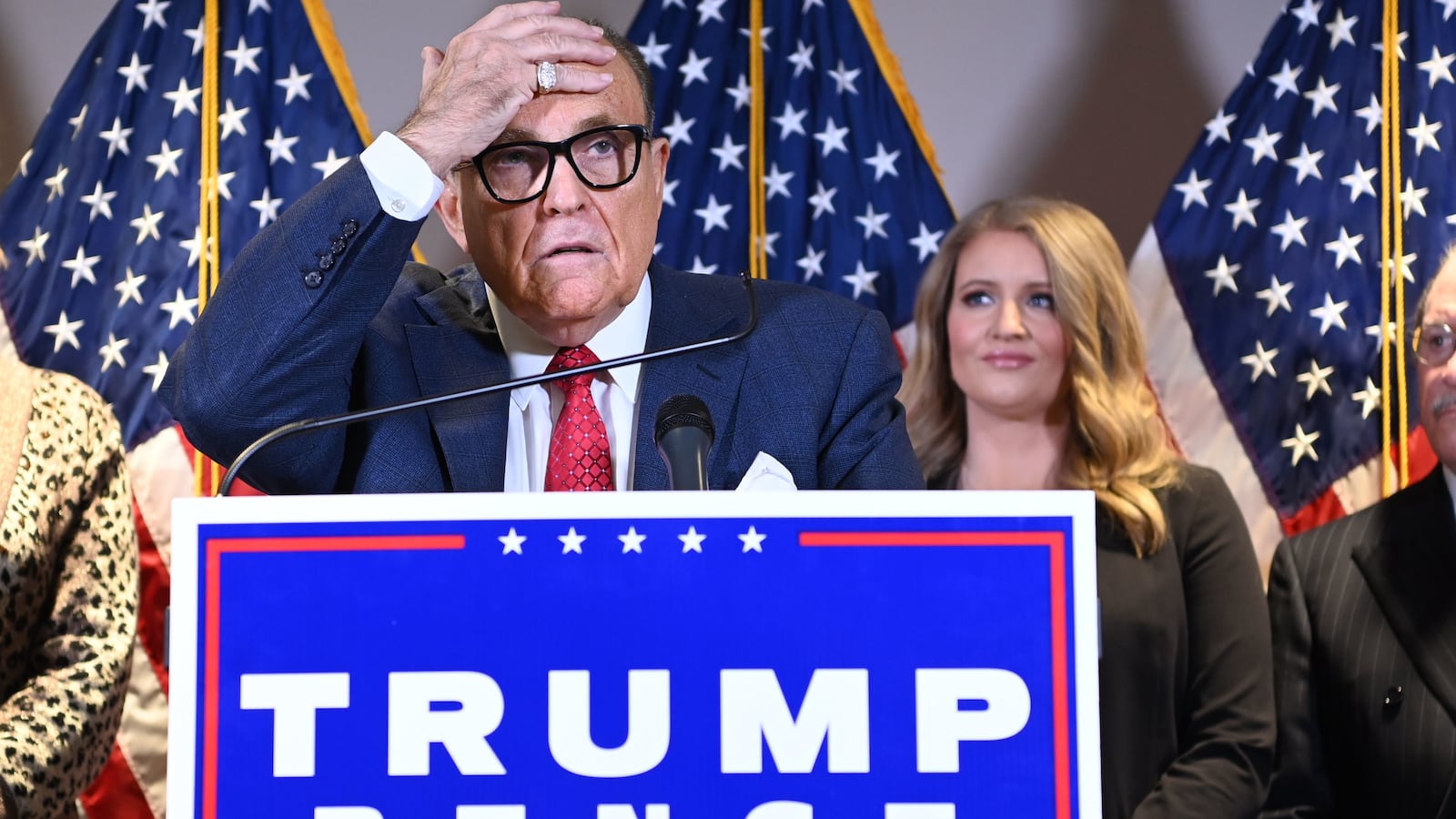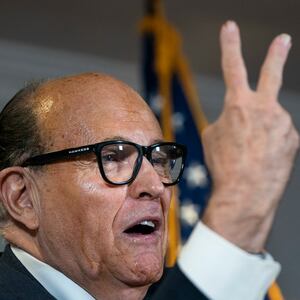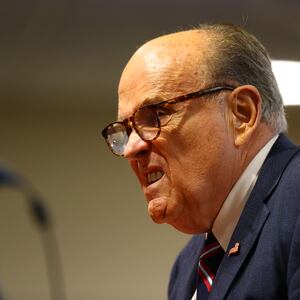Rudy Giuliani has been suspended from practicing law in New York state due to his “demonstrably false and misleading statements” about the 2020 election result.
The New York Supreme Court Appellate Division’s grievance committee filed a summary of disciplinary proceedings on Thursday, outlining multiple “uncontroverted” instances of professional misconduct.
“[W]e conclude that there is uncontroverted evidence that respondent communicated demonstrably false and misleading statements to courts, lawmakers and the public at large in his capacity as lawyer for former President Donald J. Trump and the Trump campaign in connection with Trump’s failed effort at reelection in 2020,” the five-member Attorney Grievance Committee said in its filing.
“These false statements were made to improperly bolster respondent’s narrative that due to widespread voter fraud, victory in the 2020 United States presidential election was stolen from his client. We conclude that respondent’s conduct immediately threatens the public interest and warrants interim suspension from the practice of law, pending further proceedings before the Attorney Grievance Committee.”
Giuliani was admitted to practice law in New York in 1969, and rose to prominence as a mafia-busting prosecutor. He still maintains a firm, Giuliani Partners LLC, in the Empire State and appeared as a New York licensed attorney in several lawsuits filed across the country in the wake of Trump’s 2020 defeat.
All licensed attorneys in New York must abide by professional rules of conduct, which are upheld by judicial departments of the Supreme Court’s Appellate Divisions.
In its 33-page ruling, the grievance committee outlines—and then systematically debunks—a long list of statements Giuliani made during his months-long crusade to overturn Joe Biden’s win.
For example, Giuliani claimed in several interviews and state legislature hearings that more absentee ballots came in during the election in Pennsylvania than were sent out before the election—a statement that the committee easily proved was “simply untrue.”
In response, Giuliani told the committee that an unidentified member of his “team” had “inadvertently” taken misleading information from Pennsylvania’s website.
In other examples, Giuliani repeatedly claimed that dead people voted in Georgia, at times quantifying it as 800, 6,000, or 10,515 dead people. (In truth, officials were investigating two potential cases of votes being cast in the name of dead people.) In Pennsylvania, he put the number at 8,021 dead people and then 30,000 dead people.
Public records “unequivocally show that respondent’s statement is false,” the committee said. (Giuliani argued during disciplinary proceedings that he didn’t know the statements were false but he failed to provide “a scintilla of evidence” to support his claim, the filing says.)
In one election-related lawsuit in Pennsylvania about two voters who had their mail-in ballots rejected, Giuliani repeatedly told a judge that his client was pursuing a fraud claim, “when indisputably it was not,” the committee said.
The mischaracterization of the case was not simply a passing mistake, the committee found. “Fraud was the crown of his personal argument before the court that day,” it said.
Altogether, the misconduct posed an immediate threat to the public interest, the committee concluded.
While Giuliani claimed to the committee that he believed most of his statements to be true at the time, he also offered an over-arching First Amendment defense.
But the committee said it rejected that argument. Giuliani knowingly misrepresented facts and made false statements on behalf of clients—two violations not protected by the First Amendment, it said.
The disciplinary probe was initiated in January, when State Senate Judiciary Committee Chair Brad Hoylman urged the grievance committee to investigate Giuliani’s role in the Capitol riot.
On Thursday, Hoylman said he was happy the committee agreed with his complaint. “[T]here can be no room in the profession for those who seek to undermine and undo the rule of law as Rudy Giuliani has so flagrantly done,” he said.
Separately, the New York Bar Association is investigating Giuliani after receiving hundreds of complaints about his role in the Capitol riot.
In a statement in January, NYSBA blamed the mob on Trump’s repeated false claims about the results of the 2020 election—but notes that the “president did not act alone.”
“Hours before the angry mob stormed the Capitol walls, Trump’s personal attorney, Rudolph Giuliani, addressed a crowd of thousands at the White House, reiterating baseless claims of widespread election fraud in the presidential election and the Georgia U.S. Senate runoffs,” the association, which counts 24,000 lawyers among its members, said.
While the grievance committee said it wanted to immediately boot Giuliani from practicing law, it said the suspension was only temporary pending a full formal disciplinary proceeding. Giuliani will be able to appeal the decision.









